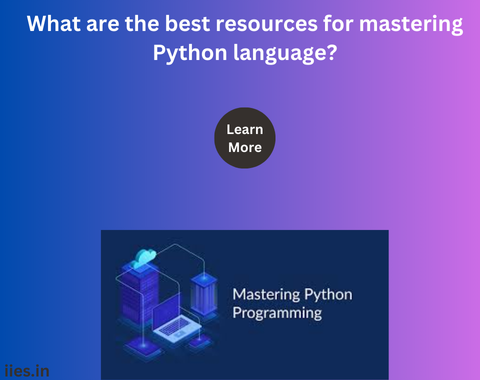1. Official Python Documentation
The official Python documentation is a must-visit for any Python programmer. It provides detailed explanations of Python’s syntax, libraries, and modules. The documentation is structured to cater to both beginners and advanced users, making it an essential resource for understanding Python’s core functionalities.
2. Online Learning Platforms
Coursera: Courses like “Python for Everybody” by the University of Michigan offer a structured learning path. Coursera provides video lectures, quizzes, and peer-graded assignments.
edX: Institutions like MIT and Harvard offer Python courses on edX. Courses such as “Introduction to Computer Science and Programming Using Python” by MIT are renowned for their depth and quality.
Udemy: With a plethora of courses available, Udemy is a great platform for learners at all levels. Courses like “Complete Python Bootcamp: Go from zero to hero in Python 3” by Jose Portilla are highly rated and comprehensive.
3. Interactive Coding Platforms
Codecademy: An interactive platform that offers a hands-on approach to learning Python. Codecademy’s Python course is beginner-friendly and covers the basics to intermediate topics through interactive exercises.
DataCamp: Specializes in data science and analytics. DataCamp’s Python tracks are particularly useful for those looking to use Python for data analysis and machine learning.
4. Books
“Automate the Boring Stuff with Python” by Al Sweigart: This book is perfect for beginners and those looking to apply Python to practical, everyday tasks.
“Python Crash Course” by Eric Matthes: A fast-paced introduction to Python that covers the basics and then moves on to projects like game development and data visualization.
“Fluent Python” by Luciano Ramalho: For intermediate to advanced users, this book dives deep into Python’s capabilities, focusing on writing efficient and Pythonic code.
5. YouTube Channels
Corey Schafer: Offers a wide range of tutorials, from beginner to advanced topics embedded systems, with clear explanations and practical examples.
Sentdex: Specializes in Python tutorials related to data science, machine learning, and web development.
6. Community and Forums
Stack Overflow: An invaluable resource for troubleshooting and learning. The Python community on Stack Overflow is very active, and most questions get answered quickly.
Reddit (r/learnpython): A community-driven platform where you can ask questions, share resources, and discuss Python-related topics with other learners and experts.
7. Project-Based Learning
Kaggle: A platform for data science competitions that allows you to apply Python to real-world problems. It’s a great way to practice and improve your skills through hands-on projects.
GitHub: Exploring open-source projects on GitHub can provide insights into how Python is used in various applications. Contributing to projects can also be a valuable learning experience.
8. Blogs and Websites
Real Python: Offers tutorials, articles, and courses on a wide range of Python topics. Real Python is known for its in-depth and high-quality content.
Python Weekly: A newsletter that curates the latest Python news, articles, and tutorials. Subscribing to Python Weekly can keep you updated with the latest trends and resources.
9. Practice Platforms
LeetCode and HackerRank: Excellent platforms for practicing coding problems. They offer a wide range of problems that can help you improve your problem-solving skills in Python.
Project Euler: Focuses on mathematical problems that require programming solutions. It’s a great way to hone your algorithmic skills.
Conclusion
Mastering Python requires a mix of theoretical knowledge and practical experience. The resources mentioned above provide a well-rounded approach to learning Python, from comprehensive courses and interactive platforms to community support and project-based learning. By leveraging these resources, you can effectively enhance your Python skills and apply them to various domains, including web development, data science, machine learning, and automation

